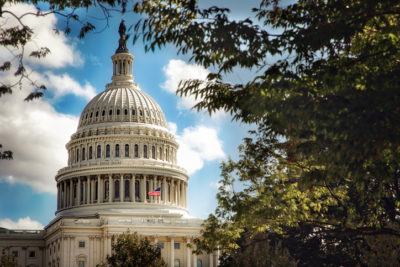How the Government Shutdown Is Exacerbating U.S. Opiate Epidemic
As the largest and longest partial government shutdown in this country grinds on with no imminent end in sight, many government agencies remain shuttered, unable to provide key services to people in need. Among those who may soon be hit hard: people with opiate addiction, whose doctors need approval from the U.S. Drug Enforcement Agency (DEA) to prescribe the much-needed opiate treatment buprenorphine.
That news first surfaced on Sunday, January 17, when Sen. Chuck Schumer (NY) said that doctors’ efforts to prescribe buprenorphine in his state were being foiled by the ongoing shutdown— because DEA staff weren’t working.
“Simply put, the DEA, in many ways, holds the keys to accessing critical anti-opioid treatment drugs that New York City and Long Island patients and doctors need to combat this deadly scourge,” Schumer said in a statement that was then reported in an article in the New York Daily News.
Echoing Schumer’s concerns in a January 16 interview, New York-based Dr. Anthony Martinez told NPR’s Robin Young that he may soon have to turn patients away from Suboxone treatment. (Suboxone is a combination of buprenorphine and the life-saving overdose antidote naloxone.)
“As of today, we have 97 patients currently on therapy, and we have six patients that are waiting, but we’re quickly obviously coming up against that 100-patient cap,” Martinez said. “We have submitted the waiver, but now it hinges on the DEA’s approval.”
His comments were especially poignant, coming as they did in the immediate aftermath of nine overdoses, three of which were fatal, in his county.
Why Subutex and Suboxone Treatment Need a Working DEA
Subutex and Suboxone are medication-assisted treatments (MATs) for opiate addiction that have been shown to significantly improve rates of recovery, by significantly reducing cravings and decreasing the risks of relapse. Like all MATs, buprenorphine, a narcotic, is meant to be taken in combination with behavioral therapies and self-help groups like Narcotics Anonymous (NA).
While Suboxone has a low potential for abuse and/or overdose, there are strict government regulations surrounding its use in treating opiate addiction. Doctors who prescribe the drug must undergo a process of certification that includes eight hours of additional training— and, those who prescribe the drug to more than 100 patients must obtain a waiver.
Similarly, a rigorous screening and accreditation process overseen by the DEA determines whether rehab providers like Beach House Center for Recovery can be allowed to dispense MATs like Suboxone. In order to administer Suboxone on site at their facility, they must first qualify as an “Opioid Treatment Program” or “OTP,” by meeting strict federal guidelines for OTP. (Thanks to having earned this designation, Beach House Center for Recovery is able to operate an in-house pharmacy that dispenses Suboxone quickly, conveniently and right on site.)
Any bottleneck in getting opiate addicts much-needed treatment as the result of the current shutdown only amplifies the urgency of today’s opiate epidemic. Consider the following:
- Every day, more than 130 people die from an opiate overdose.
- During 2017, there were more than 72,000 overdose deaths in the U.S., most of them from opiates.
- This month, the National Safety Council found that for the first time on record, the odds of dying from an opiate overdose in the U.S. are now greater than those of dying in a vehicle crash.
Clearly, this public health crisis won’t take a break just because the government has.
Do you think you could benefit from Suboxone treatment for opiate addiction? Get answers.


